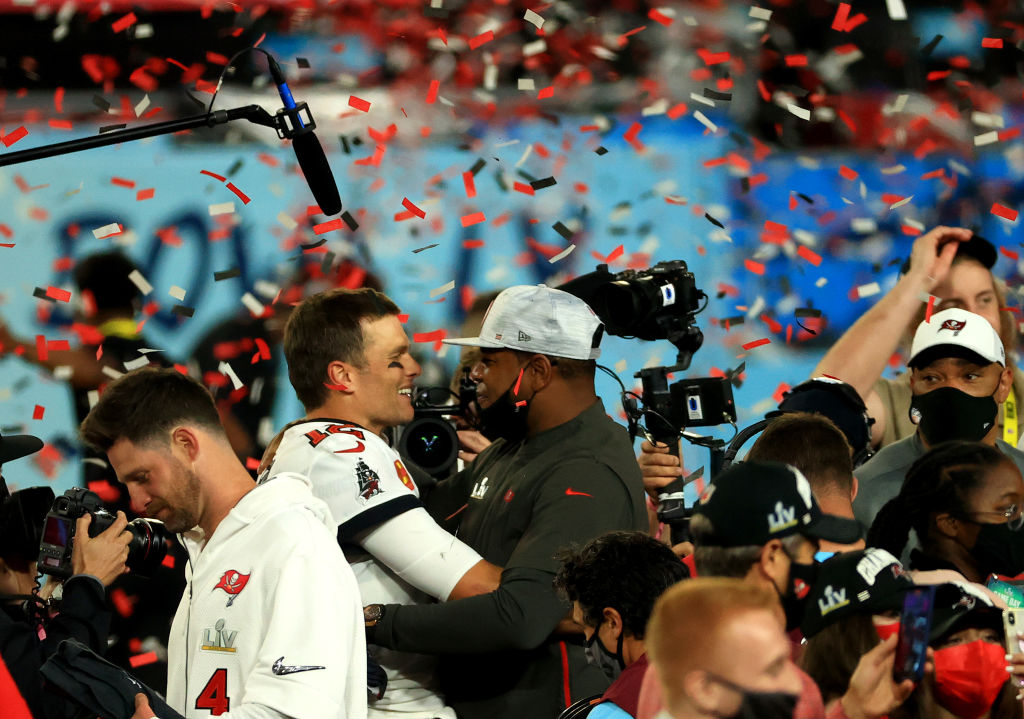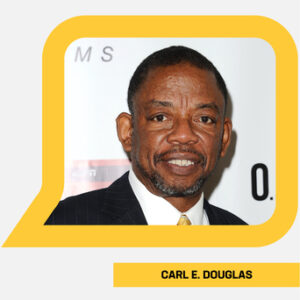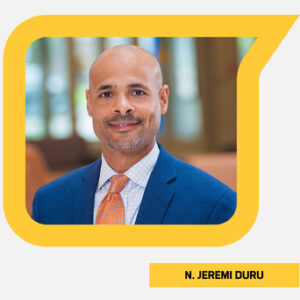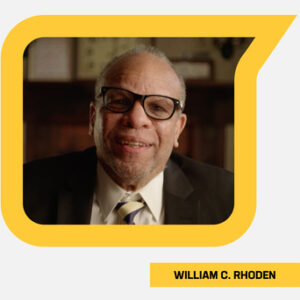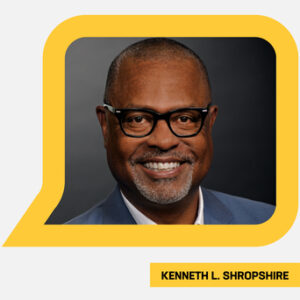GSM Live Insights: Legal Action & NFL Owners - The Path To Equity For Head Coach Hiring
In GSM Live: How The NFL Moves Forward, our panelists discussed the impact of initiatives like the Rooney Rule on hiring practices in the NFL. After yielding seemingly minor progress, we wanted to ask: Is legal action a viable solution?
Bill Rhoden hosts this follow-up no-holds-barred conversation with experts including Melissa S. Woods, Carl E. Douglas, N. Jeremi Duru, and Kenneth L. Shropshire.
“It has to be a combined effort in a lot of different spaces in order to make this change.”
Melissa S. Woods is a partner at Cohen, Weiss and Simon, LLP where she specializes in employment law. She emphasizes that while litigation is a potential solution to racial discrimination in the NFL, it cannot be the only solution. There needs to be a multifaceted approach. It’s going to take cooperation among fans, athletes, and sponsors to put financial, legal, and social pressure on owners and make them change their ways.
“You always have to follow the money… but one thing I would emphasize more that I really haven’t seen quite enough is involvement more publicly by those stakeholders: The Players.”
Carl E. Douglas is the President at Douglas Hicks Law Firm and the former managing attorney at the law offices of Johnnie L. Cochran. He says that if NFL players emphasized the disparities among coaches and hiring opportunities and called out the lack of diversity, then it could make waves through sports media which could influence NFL owners to change accordingly. He also points out that fans seem to be more invested in individual players rather then teams, which could empower players to act independently of their teams or even other players that may be complicit in discrimination.
“If you got into discovery and you saw emails, there could be some smoking guns there.”
N. Jeremi Duru is a professor of law at American University and the author of Advancing the Ball: Race, Reformation, and the Quest for Equal Coaching Opportunity in the NFL (Oxford University Press). He points out that in order for there to be legal action brought against the NFL for unfair hiring practices, there needs to be condemning discovery and a brave plaintiff who is willing to step up, challenge the league, and spearhead the movement.
“The history of Black folks in America has been sacrifice…somebody has had to sacrifice.”
Holding NFL owners accountable and enacting needed change will take sacrifice, something that Bill Rhoden points out has long been a part of Black Americans’ history and experiences in sport, law, business, and every profession. He emphasizes that young Black NFL players need to move beyond the fear of losing money or status and take a risk for progress.
“You can’t miss what you never had. So many of these young people never had a Black coach anyway…for most of us, it was flipped the other way.”
Kenneth L. Shropshire is the CEO of the Global Sport Institute. He notes that because so many Black candidates have been denied the opportunity to coach, the disproportionate number of White coaches has been normalized for so many athletes. For the athletes who do identify this problem, the decentralization and lack of a framework for social justice movements creates a new challenge in mobilizing players to hold NFL owners and executives accountable for their actions.
Read the full Global Sport Institute Field Study on NFL Head Coach Hiring & Pathways in Rooney Rule Era:
Litigation may be the key in getting NFL owners to change their ways and collaborate with players, coaches, fans, and sponsors to actually ensure diversity, equity, and inclusion across the league. However, there still may be a long road ahead until the NFL is brought to court. Getting a plaintiff to potentially sacrifice their career for the future of the league is a pretty big ask. The hesitancy of players to speak up against the issue and mobilize a movement is also proves to be another challenge in itself. But with strong coalitions and a multifaceted plan, change is always a possibility.


